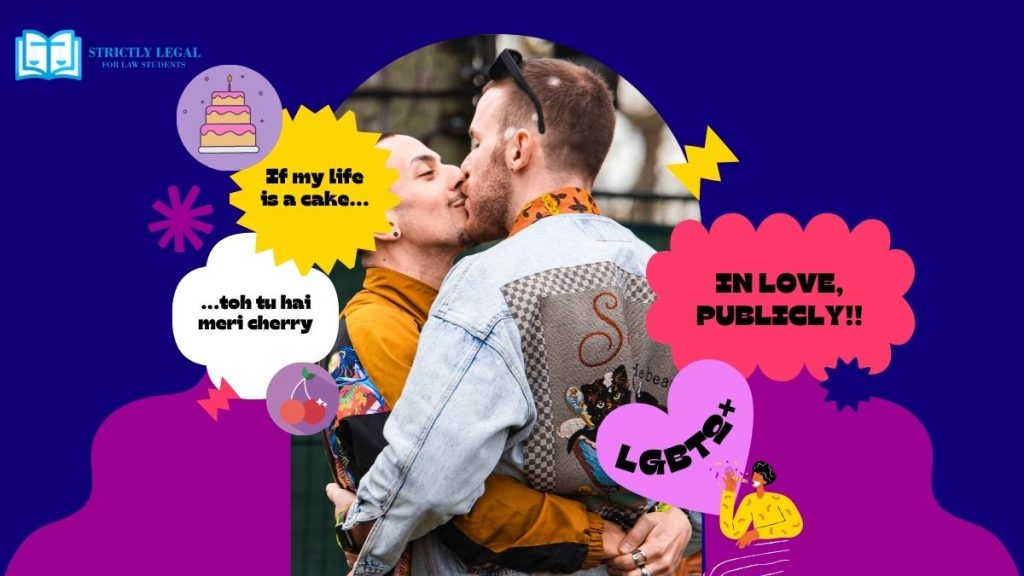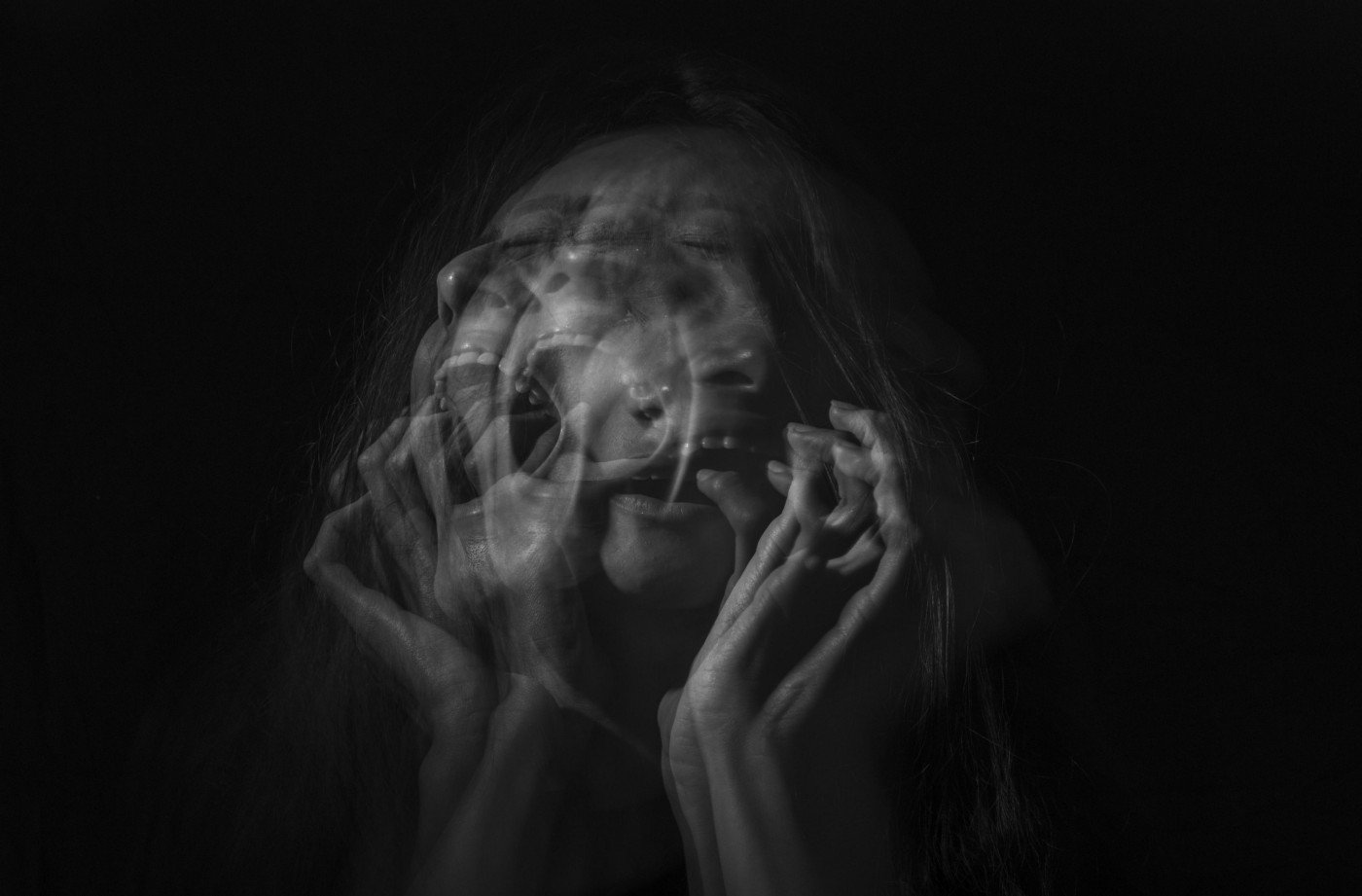Table of Contents
Introduction
Three years ago, on 6th September 2018, Supreme Court ruled that consensual adult gay sex is not a crime. Homosexuality was given legal approval and recognition. Sexual orientation is something that comes naturally to people and they have no control over it. It was a big step taken by our government to acknowledge homosexuality as it has always been considered a taboo in society. This verdict included the members of LGBTQ (Lesbian, Gay, Bisexual, Transgender Queer) community.
This article was submitted by Riya Sharma from Fairfield Institute of Management and Technology.
Section 377 states that “Whoever voluntarily has carnal intercourse against the order of nature with any man, woman or animal, shall be punished with imprisonment for life, or with imprisonment of either description for a term which may extend to ten years, and shall also be liable to fine.”
Decriminalization of Section 377 was needed because the law has been depriving people of a certain kind of their basic human rights and has also been the reason for the discrimination that has been faced by LGBTQ for not matching the societal norms for decades. Before this verdict, the vast majority of LGBTQ used to live double lives, pretended to be heterosexuals so that they are accepted as human beings in our society. They had an immense fear of being judged not only by society but also by their own family.
Article 14 and 15 of the Indian Constitution
Fundamental rights apply to all the citizens of India irrespective of caste, religion, gender, race, etc. These rights are for the upliftment of those sections in our which are subjugated such as LGBTQ.
Article 14 of the Indian Constitution requires that the state shall not deny any person ‘equality before law’ and also provide them with equal protection of laws. Article 14 prohibits discrimination of any sort and demands that every individual should be treated equally before the law. Discrimination on the basis of faith, colour, caste, sex, or place of birth is prohibited.
Article 15 of the Indian Constitution, protects the citizens of India from any sort of discrimination faced by them on the grounds of caste, sex, religion, race and place of birth. Article 15 doesn’t allow the state to make any discrimination against its own citizens on any of these grounds.
Delhi High Court’s 2009 Verdict
An NGO named Naaz Foundation first raised the issue of Section 377, which earlier in 2001 approached the Delhi High Court which had decriminalized the sex between consenting adults of the same gender. The case of Naaz Foundation v. Govt. of N.C.T of Delhi, held the penal provision as “illegal”. Apex court in 2013 overturned the Delhi High Court’s 2009 judgement and it also dismissed the review plea against which curative petitions were filed.
The apex court challenged the re-criminalization of consensual gay sex between two adults by commencing the hearing with fresh writ petitions, rejecting the Centre’s plea seeking postponement of the proceedings by four weeks.
In 2013, Section 377 restored the criminality of the sexual relationship between people of the same gender, after Delhi High Court decriminalized it in 2009. On July 10, at the outset of the hearing, the five-judge bench had made it clear that it was not going into the curative petitions and would on the fresh writ petitions in the matter.
Navtej Singh Johar v. Union of India
The primary issue of the case was the constitutional validity of Section 377 of the Indian Penal Code, it held consensual sex between adults of same gender a crime and titled it “Unnatural Offences”. In 2016, Navtej Singh Johar, who is a part of LGBTQ filed a writ petition which challenged the validity of Section 377 of IPC,1860. He was seeking recognition for right to choose a sexual partner should be a right to life guaranteed by Article 21 of the Constitution of India. The petitioner argued that Section 377 of the constitution was violating Article 14 of the Indian Constitution. However, on 6th September 2018, it was unanimously decided by the court that Section 377 was unconstitutional as it barred and criminalized the consensual sexual conduction between two adults of the same sex. This case overturned the previous ruling of the Supreme Court in the case Suresh Kumar Koushal v. Naaz Foundation.
Impact of decriminalization of homosexuality
The LGBTQ community used to be treated as outcasts and were abused in all sorts of ways prior to the SC verdict. Homosexuality was considered a taboo in India, people used to avoid acknowledging the fact that two people of the same gender can be together in a conjugal relationship. Since the 2018 Supreme Court verdict, Indians especially youth has started acknowledging homosexuality. They are embracing homosexuality and are accepting that it is as natural as heterosexuality, but it is still a long way to go. There are still people who are homophobic and feels that it is some kind of disease that needs to be dealt with. Homosexuals are also living in denial, they are hesitant in expressing their sexual orientation in front of people as they fear being judged by their families, friends, teachers, colleagues etc. They doubt that their own families are in not support of them as many Indian families support homosexuality until one of their own chooses to come out in open.
There are some cases where homosexuals are said to have some kind of mental disorder when they are exposed and must undergo surgery and compulsory reformation. They face abuse everywhere. Even when it comes to finding a job, they face difficulties. If they are attacked or raped, they must shut up. Homosexuals are also susceptible to HIV and other sexually transmitted diseases. Not all gay men have anal sex. However, anal sex is one of the main causes of HIV infection among gay men. Men who engage in unprotected penetrative anal sex are more likely to transmit HIV to their partners. When men have both, this combination of behaviours optimizes the spread of HIV in ways that heterosexual couples do not. [9] They lack adequate sanitation facilities to meet their unique needs. All the atrocities and injustices faced by the LGBT community lead them to take drastic measures, such as ending their lives. What the decriminalization of Article 377 does not do is establish the rights of the LGTB community.
Conclusion
Obviously, even three years after the decriminalization of article 377, the situation of homosexuals in the country has not been calm. They still have a lot of discrimination and violence to experience. The decision may allow them to legally have sex with their partners, but it does not give them dignity in society. The country, regardless of its political, economic and cultural agreements, has a legal obligation to promote and protect the human rights of people. They must fight for their rights every day. The minimum needs that heterosexual couples can get, they don’t get. They must confront the opinions of the people in public places.

Users not registered with Strictlylegal can Email us their content and the same are posted through this account. In case of abuse, kindly let us know at [email protected]





